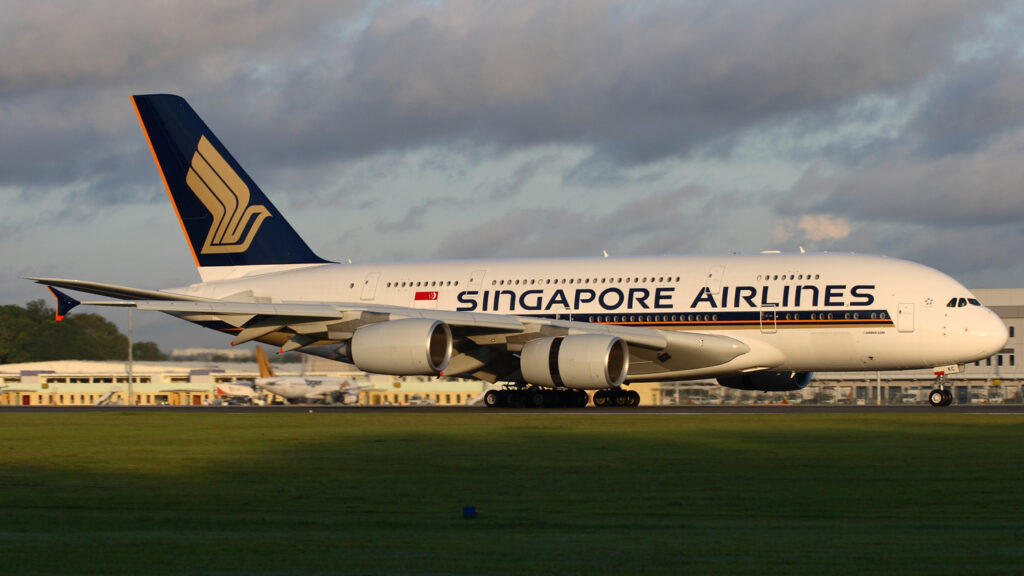Singapore Airlines Set to Own 25.1% Stake in Expanded Air India Group
Singapore Airlines (SIA) and Tata Sons have agreed to a deal that will inject an additional SGD 360 million (USD 267 million) into Air India. This investment will give SIA a 25.1 percent stake in the combined entity of Air India and Vistara Airlines following their takeover and merger by Tata.
Singapore Airlines and Tata Sons have entered into a deal in November 2022 to invest USD 267 million into Air India, as per the quarterly financial report. This strategic initiative is intended to bolster future growth, however, its approval by regulators is still pending.
SIA declared that the combined entity would be four to five times bigger than Vistara and have a powerful foothold in all major airline segments in India. The planned merger will solidify SIA’s presence in India, reinforce its multi-hub strategy, and enable it to stay involved directly in this immense and rapidly-expanding aviation market.
The SIA Group has embraced deeper collaboration with other airlines as part of its partnerships strategy. This will enable them to bring more customers to their hubs, provide a wider range of options, and expand their global presence.
Last week, Singapore Airlines (SIA) revealed that their net profit for the quarter ending in December had reached a record-breaking SGD 628 million (USD 465 million), and their total profits for the financial year-to-date had also reached an all-time high of SGD 1,555 million (USD 1,152 million). These are the highest figures SIA has ever seen in a quarter and throughout the first nine months of the financial year.
In a statement, the airlines said that the strong demand for air travel seen since April 2022, when Singapore eased its border restrictions, has continued into the third quarter of FY2022/23. This marks the beginning of the Singapore Airlines (SIA) financial year.
Singapore Airlines

From February 13, Singapore is lifting all remaining Covid restrictions for both visitors and locals. Unvaccinated travelers no longer need to present a negative pre-departure test result or purchase a travel insurance policy to cover Covid treatment. Vaccinated people are exempt from submitting proof of vaccination upon arrival. Additionally, face masks will no longer be mandatory on public transport.
Singapore was among the first Asian countries to resume operations after the onset of the Covid-19 pandemic, thus providing a boost to its tourism industry as well as its national airline. As part of the government’s effort to support businesses impacted by the pandemic, the airline received grants, in addition to SGD 22.4 billion (USD 16.6 billion) raised from its shareholders, primarily led by state investment firm Temasek Holdings, through sales of shares and convertible bonds. As of December 2022, the airline has maintained a cash balance of SGD 15.4 billion.
SIA’s swift response to the Covid-19 crisis enabled the airline to retain most of its staff and fleet, allowing for quick restoration of routes once travel resumed. In contrast, other regional airlines had to downsize their personnel and sell aircraft to stay afloat. In December 2022, SIA’s group passenger capacity reached 80 percent of pre-Covid levels, a notably higher figure than the 51 percent average for the Asia-Pacific region.
SIA’s swift response to the Covid-19 crisis enabled the airline to retain most of its staff and fleet, allowing for quick restoration of routes once travel resumed. In contrast, other regional airlines had to downsize their personnel and sell aircraft to stay afloat. In December 2022, SIA’s group passenger capacity reached 80 percent of pre-Covid levels, a notably higher figure than the 51 percent average for the Asia-Pacific region.
Also Read: Latest Indian Aviation News and Aviation News
Go through, the Mall of Aviation



